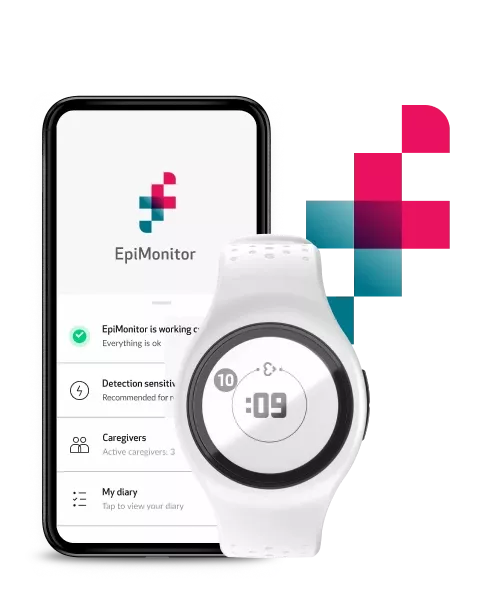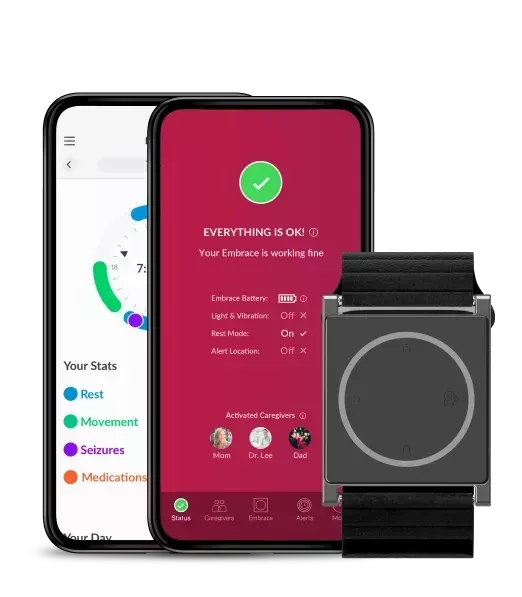Should I tell my employer about my epilepsy?

You’re back to work after being newly diagnosed with epilepsy, or maybe you have been newly employed at your job and don’t know if you should disclose your condition to your employers or colleagues or how to tell them. You are not alone. Studies [1][2] have shown that people with epilepsy generally do not like to disclose their condition to their employers, as they are not sure of the type of reactions they’ll receive.
Deciding to talk to your manager or coworkers about your epilepsy can be difficult, and it has its pros and cons, as do all decisions. Before you decide, we’d like to provide you with the positive and not-so-positive sides of informing your employer, along with some information on how to tell your colleagues about your condition, to help you make a better choice.
Deciding whether or not to disclose your condition to your employer will depend on how frequent your seizures are or if you have been seizure-free for some time. If you decide to tell them, some employers might perform an assessment, such as a Health and Safety Risk assessment (in the UK), or its equivalent in the USA and other countries, to determine how safe it is for you to work. Not to worry, many people still work despite having epilepsy, especially if their seizures are under control due to medication [2]. You can read more about working with epilepsy in this blog post.

Down the line, it might become important to tell your employer, especially your manager about your condition. Before telling them, you might want to first consider telling the closest person to you at work (we have added some helpful information on how to do this later on in this post), so that you can have someone to support you in case your manager’s reaction is not what you expect. Like every situation where you need to share personal information, there are some benefits and drawbacks you should expect.
Benefits of disclosing it to your employer
- Workplace adjustments: When your employer knows about your condition, they’ll be able to make some adjustments for you to better manage your condition. For example, they can adjust your working times, making sure not to put you on shifts so that your rest periods are not disrupted. They might also be able to give you tasks that won’t involve a lot of physical strength or tasks that won’t involve driving if you are not able to drive due to your epilepsy.
- Insurance benefits: Some employers offer workers compensation insurance or employment insurance for illnesses and disabilities. Opening up to your employer about your condition might help you get these benefits in case you have a seizure at work. They might also provide you access to critical illness insurance for disabilities, if the company voluntarily gives it.
- It helps your employer develop a first response plan in case you have a seizure: Seizures might happen at any time, and informing your employers about your epilepsy will help them put action plans in place, should you have a seizure at work.
How to tell your colleagues about your epilepsy
Dealing with epilepsy at work might mean that, apart from your employer, you also have to tell the people you work with. Telling your colleagues about your epilepsy can be easier than speaking with your employers, with the added benefit that they can give you the needed support if you eventually decide to tell your employers. Here are some useful tips to help you disclose your condition:

- Make sure that you speak with someone you can trust: Trust is very important when choosing someone to tell about your condition. You should tell someone that you can trust to handle the information respectfully and that can do everything necessary when you have a seizure.
- Be honest, and straightforward: According to the Epilepsy Foundation, you should mention to them if you’ve ever had a seizure, the types of seizures you usually experience, and possibly your seizure triggers. Help them understand the situation, as they have probably never been close to anyone with epilepsy and might not know anything about the condition. You can share this blog post with them to help in explaining what having a seizure feels like.
- Keep it simple: A recent ‘How2Tell’ study, states that you should keep it simple when disclosing your condition. According to the study, your message should be in 3 parts: “Start by stating that you have epilepsy, follow this with some reassuring words and finish with practical information on what you want the person to do if you have a seizure." Reassuring them will make them less worried about it, and giving them practical information on what to do will make them better prepared to help you in case of an emergency.
- Tell them if you have set up any action plans to follow if a seizure happens. For example, if you have a Seizure Action Plan, let them have a copy in case of an emergency. If you have an Embrace watch, you can add them as caregivers and let them know that they’ll receive alerts if it detects a possible seizure.
Drawbacks of disclosing to your employer
Sometimes, disclosing your condition may not go the way you want it to. It can be discouraging when the people you work with don’t know how to respond to knowing about your epilepsy. Many people with epilepsy complain about negative responses from their workplace when they open up about their epilepsy, and most of them do not disclose their epilepsy to their employers for this reason. Common reactions among employers to people with epilepsy disclosing their condition are:
- Discrimination: A recent study shows that some employers still consider employing someone with epilepsy "a major issue" due to many factors. It can be difficult telling such employers about your condition because they tend to treat people with epilepsy differently or less favorably, despite efforts by epilepsy organizations and governments to curb this.
- Intimidation: Some employers might resort to intimidation with words every time they get the chance. Some epilepsy patients have spoken about how they were intimidated in the workplace because of their epilepsy or seizures. No employer should intimidate people with epilepsy (or anyone at all), especially after they have mustered up the courage to disclose their condition, but this is sadly what happens in some cases.
- Lack of support: Unfortunately, it’s possible that after disclosing your condition to your employer that they will not give you the kind of support that you’ll need to help you manage your job and your condition. It’s disheartening that some employers might use it against you when you are due for a promotion or in exposing you to opportunities that might help you get better at your job.

Employers have the responsibility to adhere to many laws protecting people with epilepsy, and you should know these laws are designed to protect you from being treated differently because of your epilepsy. In the US, for example, you are covered by the Americans with Disabilities Act, to protect you against discrimination in the workplace. You can read about some of these rights in our previous blog post.
Despite some of the drawbacks, don’t be afraid to tell your employers about your epilepsy. The way you communicate it to them might make a huge difference in how they respond to the information. You should also let them know specifics like if you can drive or not or if you need to avoid certain jobs or activities. Tell them if they’ll need to make some adjustments for you regarding your job, like longer breaks, if necessary. Explain to them how your condition might affect your performance or if it shouldn’t affect your performance at all.
If you decide not to tell your employer but want to keep your condition private instead, it is still important to inform someone close to you about it. It’s useful not only so that they can help you when you have a seizure, but so that they can provide additional information to your physician that your colleagues might not have recorded. In this case, having an Embrace watch can be invaluable since it can alert your caregivers in case of a possible seizure, even if they are not physically near you, and also log seizure information that you can share with your physician.
It can be hard to discuss your epilepsy in your workplace, whether to colleagues or to your employer, but you should know that confidence and honesty are necessary to be able to educate and assure them about your condition. Be comfortable with your epilepsy, and this will give you enough confidence to tell others.
Words worth reading

References:
- Staniszewska A et al (2015), ‘Professional Activity of People with Epilepsy’, Medycyna Pracy, Vol.66, No.3
- de Souza, J. L., Faiola, A. S., Miziara, C., & de Manreza, M. (2018). The Perceived Social Stigma of People with Epilepsy with regard to the Question of Employability. Neurology research international, 2018, 4140508. doi:10.1155/2018/4140508



